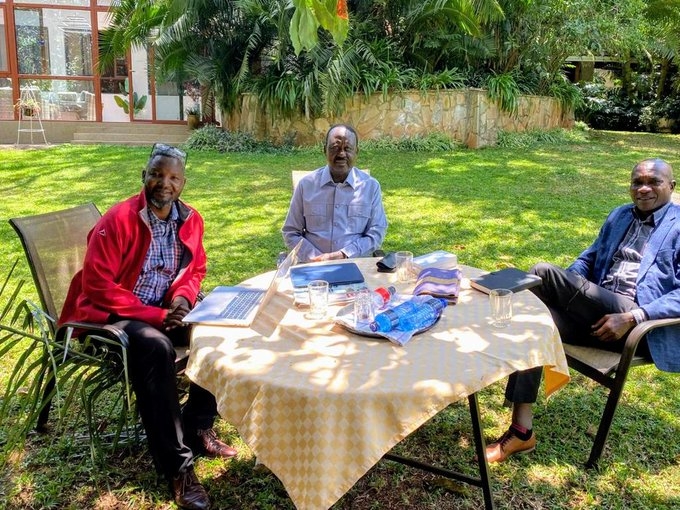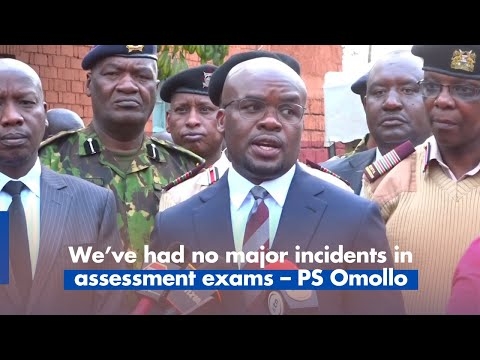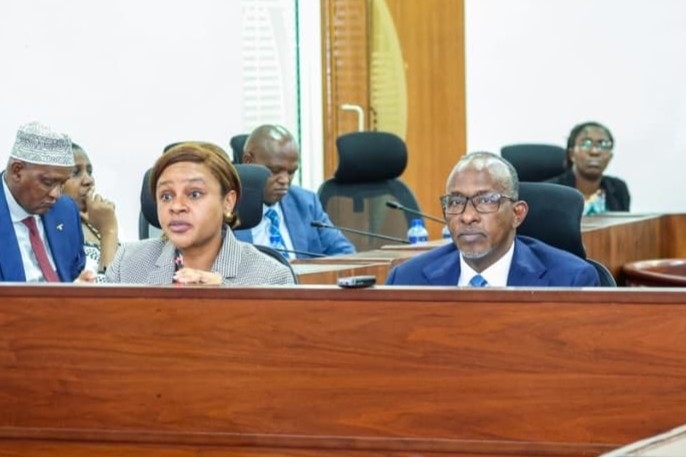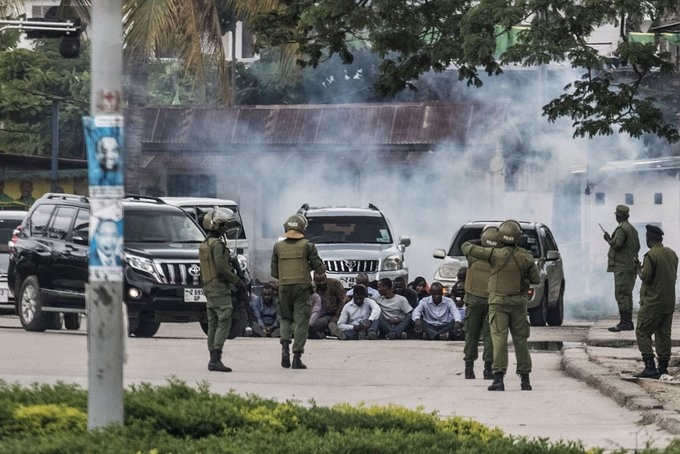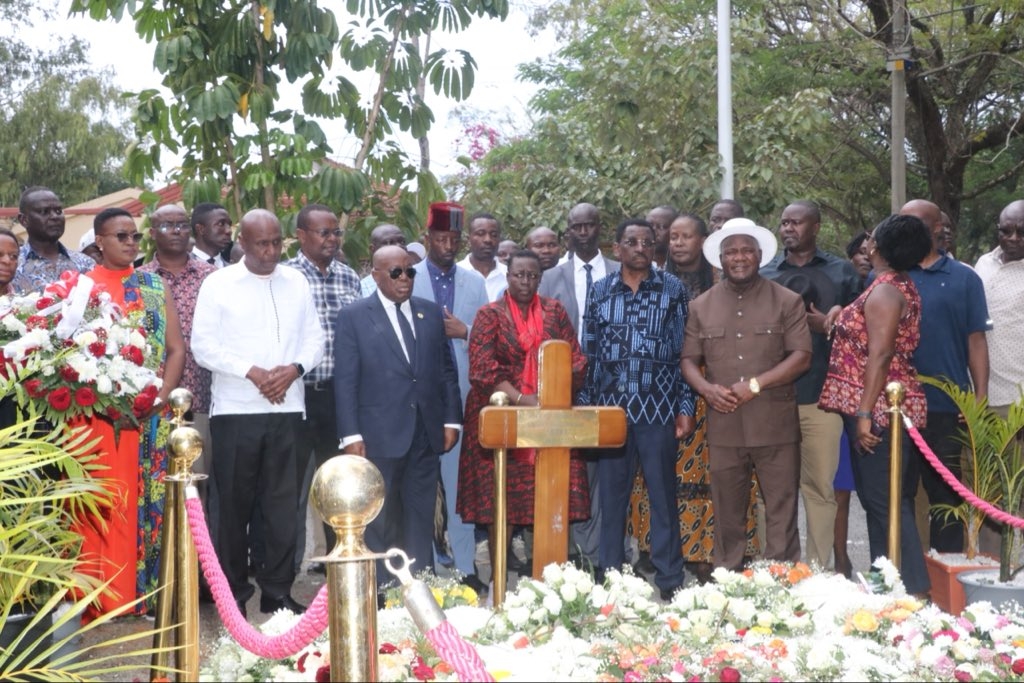
The year 2024 will go down as a
significant turning point in the way virtual court proceedings are handled, due
to an increase in disruption by users.
Users have disrupted virtual court proceedings in various ways, with issues ranging from technical glitches to inappropriate behaviour.
Even as virtual courts evolve, finding the balance between accessibility, efficiency and maintaining the sanctity of court proceedings will be crucial.
Some of the 2024 events that may catalyse further improvements in how virtual courts are conducted are listed below.
Unruly behaviour
High Court Judge Bahati Mwamuye was on several occasions forced to adjourn his virtual proceedings due to the unruly behaviour of court users.
The Judge was forced to cut short his virtual
proceedings in a case challenging the JKIA takeover by Indian conglomerate
Adani Group.
The deal
has since been cancelled by the government after the we indicted Adani but the cases pend determination in a Kenyan court.
During one of the virtual court proceedings, a rowdy group of people stormed the session and started changing 'Adani must go'.
Some were inappropriately
dressed, while others would appear eating food from their plates.
He ended up not giving any directions in the matter urging parties to
meet in open court.
He was faced with a similar situation when handling the impeachment proceedings facing embattled Meru Governor Kawira Mwangaza.
Users would type on the chatbox as the case
was proceeding seeking to find out from the Judge when the matter is likely to
come to an end.
"Good morning my Lord, my name is Mutwriri Karuna, EBS, a voter in Meru, concerned about the ruling on Kawira Mwangaza's case, my prayer is that justice is not delayed. When are you going to make the ruling your honor," one of them said.
"Kawira Mwangaza must
go," another one typed, with a third user by the name Moses typing in the chatbox
saying, "Kindly our
court, kindly note Meru we are suffering, kindly let us know whether Kawira is
still holding office..."
This prompted the Judge to immediately ask Moses to turn on his camera and audio so as to address the court on the statements he had made.
The Judge repeatedly called out his name but Moses had disappeared into thin air.
He appeared at the last minute when
the court had issued a warrant of arrest against him for being in contempt of
court.
At the time, advocates had logged off from the
session and the Judge asked him to appear the following
day in court.
He was ultimately let go and his
warrant set aside after pleading for mercy.
"This is not social media. Do
not do this again whether in physical or virtual court," the Judge said.
The behavior, if remains unchecked will diminish the dignity of the court due to lack of decorum and etiquette.
Supreme Court judges also had their fair share when it came to disruption of professionalism.
This was after an advocate dressed inappropriately and failed to follow expected courtroom etiquette, impacting the decorum of the proceedings.
The advocate who was heavily censured by the Supreme Court Judges appeared in court while lying on his bed during the hearing of the 2023 Finance Act appeal.
The issue was addressed by Deputy Chief Justice Philomena Mwilu after the parties concluded highlighting their submissions in the appeal.
Mwilu singled out the advocate whose conduct came under severe censure from the bench.
"You were seen scrolling on your phone as you lay in your bed. At
Kenya School of Law, we were told something about professional ethics and
etiquette," Mwilu said.
She called on advocates to ensure they respect the court and maintain professionalism.
Technical failure.
Internet connectivity issues
and strain on the network have frequently caused delays and interruptions
during virtual hearings, impacting the smooth flow of court proceedings.
In cases with extensive public interest, the court bandwidth may be negatively affected if many people tune in.
A case in point was the matter being handled by
Justice Lawrence Mugambi revolving around the deployment of military within the
CBD.
The virtual court characterized by all manner of persons had over 1000 attendees causing the link to drop or fail every minute.
Some of the attendees before Mugambi's virtual court grew increasingly impatient as they waited for the judge to join and deliver his ruling on the case of KDF deployment.
The judge had at the time indicated that he would issue his ruling at 3 pm regarding orders sought by the Law Society of Kenya (LSK) over the deployment of military officers only for the same to be delivered at 730 because of the strain on the network.
Advocates present pleaded with the seemingly youthful members to maintain decorum but this fell on deaf ears.
From "Zakayo shuka" to "Kwani Judge ameenda maandamano," were the voices being heard from the other end.
Others said, "Justice delayed is justice denied" while others were heard saying "Our bundles are almost over."
These disruptions highlight the challenges of adapting traditional court procedures to digital platforms, pushing courts to refine security protocols, educate participants, and improve the technological infrastructure for virtual hearings.


